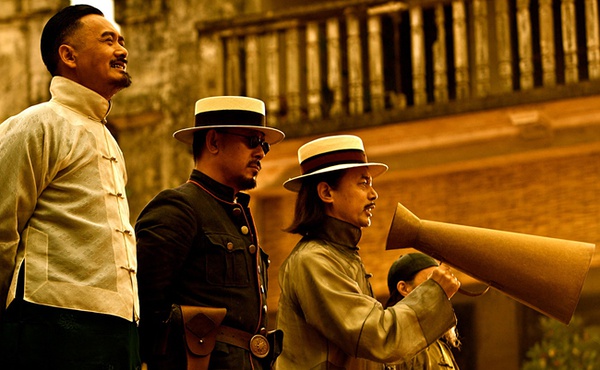justjlm.org – Let the Bullets Fly (2010), directed by Jiang Wen, is an exceptional blend of action, comedy, and social commentary set in the warlord era of 1920s China. This Chinese film quickly became a cultural sensation, captivating audiences with its clever script, star-studded cast, and intricate plot. In this article, we delve into the film’s narrative, themes, and its impact on both domestic and international audiences.
A Synopsis of Chaos and Comedy
The film opens with a bandit leader, Zhang Muzhi (played by Jiang Wen), hijacking a train carrying a newly appointed governor, Ma Bangde (played by Ge You), and his wife. What follows is a series of comedic and action-packed events as Zhang and his gang attempt to usurp power in the small town of Goose Town. Amidst the chaos, they encounter the local tyrant, Master Huang (played by Chow Yun-fat), setting the stage for a power struggle filled with witty banter, unexpected twists, and explosive action sequences.
Themes: Power, Corruption, and Satire
At its core, Let the Bullets Fly is a satire on power dynamics and corruption. Through its humorous portrayal of characters and situations, the film critiques the societal structures and the often absurd nature of authority and greed. The characters, each driven by their own motives, reflect the complexities of human nature and the moral ambiguities that come with power.
Jiang Wen’s direction masterfully balances the film’s comedic elements with its darker undertones, creating a narrative that is both entertaining and thought-provoking. The film’s dialogue is sharp and layered with meaning, offering viewers a chance to reflect on the parallels between the fictional world of Goose Town and real-world political landscapes.
Cinematic Brilliance and Cultural Impact
Let the Bullets Fly is not only a critical success but also a box office hit, becoming the highest-grossing domestic film in China at the time of its release. The film’s success can be attributed to its engaging storytelling, strong performances, and its ability to resonate with audiences through its universal themes.
The cinematography and production design capture the essence of the era, with meticulous attention to detail in costumes and sets that transport viewers to a time of historical significance. The film’s score, composed by Joe Hisaishi, further enhances its dynamic narrative, adding depth to the emotional and action-packed moments.
Conclusion: A Timeless Classic
Let the Bullets Fly stands as a testament to Jiang Wen’s prowess as a filmmaker and his ability to craft a film that is both entertaining and meaningful. Its impact on Chinese cinema is undeniable, influencing a new wave of filmmakers and garnering international acclaim. As a film that transcends cultural and linguistic barriers, Let the Bullets Fly remains a must-watch for cinema enthusiasts and serves as a powerful commentary on the timeless themes of power and human nature.
